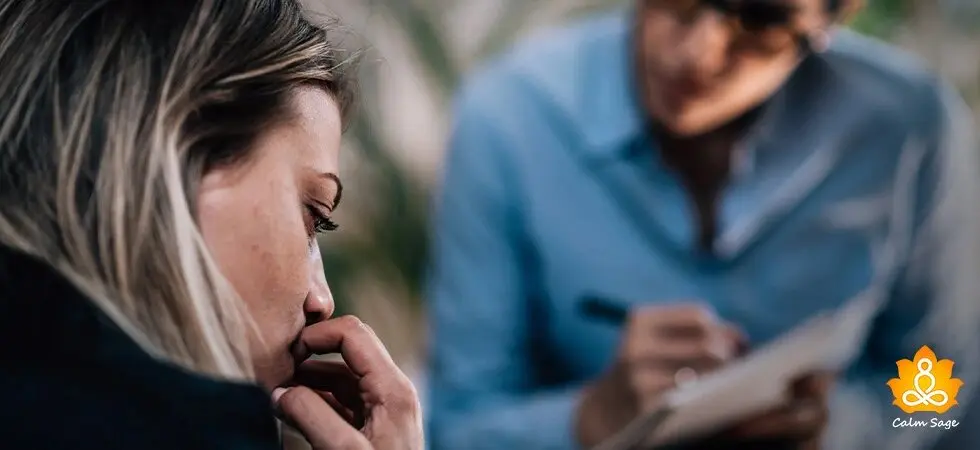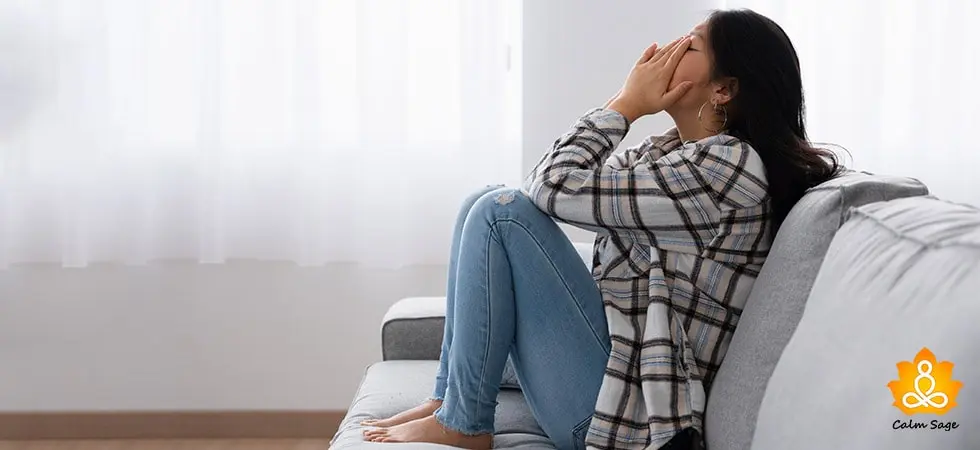Do You Feel Second-Hand Embarrassment? Know What Causes it And How to Stop
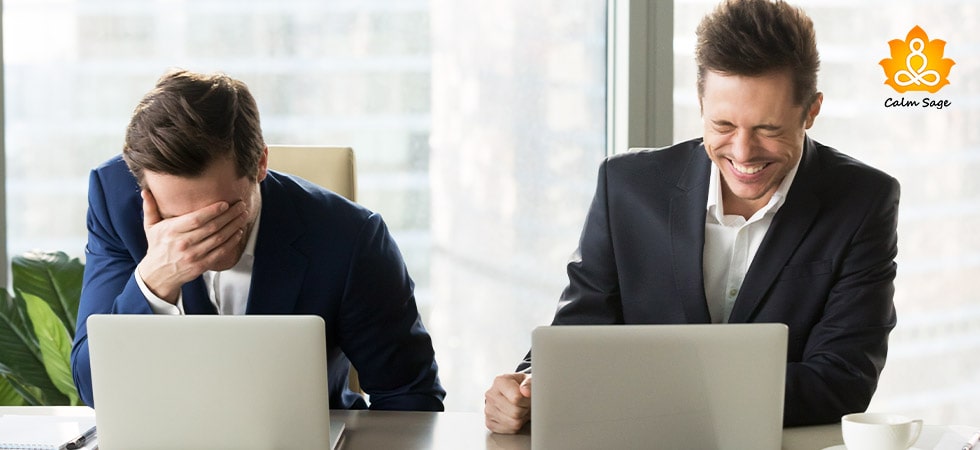
Have you ever cried while watching someone else embarrass themselves in real life or even on the TV? I’ve certainly felt second-hand embarrassment while reading my favorite character doing something silly in the book, so I get that socially awkward moment when you feel nervous and that sinking feeling in your stomach when you watch someone else doing something cringe-worthy.
This is the world of second-hand embarrassment or vicarious embarrassment where our hearts race, cheeks burn, and empathy rises. You might be more prone to this second-hand cringe if you’re an empath or have social anxiety disorder.
Today, we’re exploring the fascinating world of second-hand embarrassment, why it happens, and how this feeling can be linked with anxiety, if at all. Keep reading to also learn some quick tips to manage these cringe-worthy moments.
What Is Second-Hand Embarrassment?
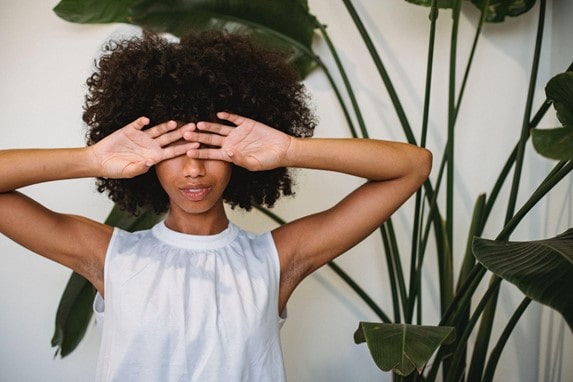
Second-hand embarrassment, also known as vicarious embarrassment, is that cringy feeling you get when you witness someone else – a loved one or even a stranger – doing something embarrassing.
It’s like feeling embarrassed on their behalf even if you’re not the one stuck in that socially awkward situation. Trust me, we’ve all been there; it’s that awkward, squirmy feeling you get in the pit of your stomach when you see another person in your vicinity make a social blunder.
After feeling vicarious embarrassment, you may even want to actively avoid the person who did the blunder or even avoid watching the TV or reading the book that made you cringe.
If you get second-hand embarrassment, then you might experience these symptoms;
- Sweaty palms and underarms
- Blushing or feeling flustered
- Getting goosebumps
- Feeling ashamed or guilty
In many cases, second-hand embarrassment can become a symptom or a form of social anxiety or other anxiety-related disorders.
Examples of Second-Hand Embarrassment…
Some common scenarios where you might feel second-hand embarrassment can include;
- Watching a talent show where a contestant forgets the lyrics to their song
- Watching a friend tripping and falling on a busy street
- Hearing someone burp or fart in public
- Seeing toilet paper stuck on someone’s shoes
- Hearing or seeing someone say or do something embarrassing in a work meeting
What Causes Second-Hand Embarrassment?
So, what goes on in your head when you feel second-hand embarrassment? Well, it can be a complicated mix of empathy and social awareness. When you see someone in a socially awkward situation, your brain may activate the areas responsible for empathy and social awareness. You begin to put yourself in their situation and begin to feel what they must be feeling. It could also be a simple case of your brain telling you that this could have been worse; it could’ve been you!
Second-Hand Embarrassment And Anxiety: Is There a Link?
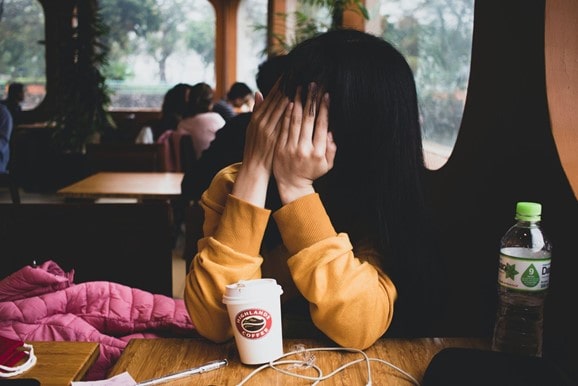
Second-hand embarrassment could be considered a symptom of anxiety, so yes, they might be related. If you frequently feel embarrassed during someone else’s cringe-worthy moments, then it could be considered a second-hand form of social anxiety or anxiety disorder. The constant fear of being judged or making mistakes, for example, can make you more prone to vicarious embarrassment.
If you feel uncomfortable, uneasy, and panicked during someone else’s socially awkward moments, then it is suggested that you speak to a professional.
If you suspect that your second-hand embarrassment is related to social anxiety or other anxiety disorders, then a professional can administer treatment approaches to help you. Therapy approaches like cognitive-behavioral therapy (CBT) can help you manage anxiety and reframe your thought processes against embarrassing situations.
In some cases, medications might also be prescribed to help you deal with anxiety symptoms. In many cases, a combination of therapy and lifestyle changes is enough to manage symptoms and thoughts that occur during socially awkward moments.
How to Stop Second Hand Embarrassment
You may wonder; is it possible to stop second-hand embarrassment? Well, the answer would be “YES”. With some healthy intervention and simple coping tips, you can stop second-hand embarrassment from affecting you;
1. Practice Mindfulness
Mindfulness is the art of staying present in the moment and practicing this technique can help remind you that everyone makes mistakes. You can, with mindfulness, try to focus on the positive aspects of the situation instead of dwelling on or overthinking about the embarrassing moment then and there.
2. Be Empathetic
To stop second-hand embarrassment from affecting your mind and heart, you can use such a situation to improve your empathy skills. Instead of ignoring or flinching away from the situation, take this moment to get in touch with your emotions and those of others.
3. Take Deep Breaths
When you feel the second-hand embarrassment coming on, take a few deep and deliberate breaths. It can help you calm down and soothe your nerves, effectively reducing the intensity of your vicarious embarrassment moment. You can also use thought-stopping techniques to shake away negative thoughts.
4. Shift Your Attention
If the situation is becoming too awkward for your taste, then try to shift your attention away from the cringe-worthy situation. Distract yourself with something else such as striking a conversation with someone or redirecting your thoughts to your happy place or something positive. Do not dwell on the situation if it is becoming too overwhelming for you.
5. Be Realistic
Know that it’s in human nature to make mistakes. Everyone experiences moments of embarrassment and awkwardness. It’s what makes us more human. So, try to be realistic with the situation. You feel second-hand embarrassed now, but tomorrow it’ll be another day and who knows, maybe everyone will forget about what happened.
Wrapping Up…
Second-hand embarrassment is a curious, fascinating, and quite relatable phenomenon that often brings us together in shared discomfort. Knowing what causes second-hand embarrassment and how you can learn to manage the anxiety that comes with it can help you become more skilled in empathy and social awareness.
So, when you face another socially awkward or cringe-worthy moment – reading, watching, or living – take a more relaxed and mindful approach to the situation. Keep in mind the above-listed tips and see how you handle vicarious embarrassment with social grace!
I hope this article helped you understand what second-hand embarrassment is, why it happens, and how you can cope with it. Let me know what you think should be done during cringe-worthy and socially awkward moments in the comments below.
Take Care!






